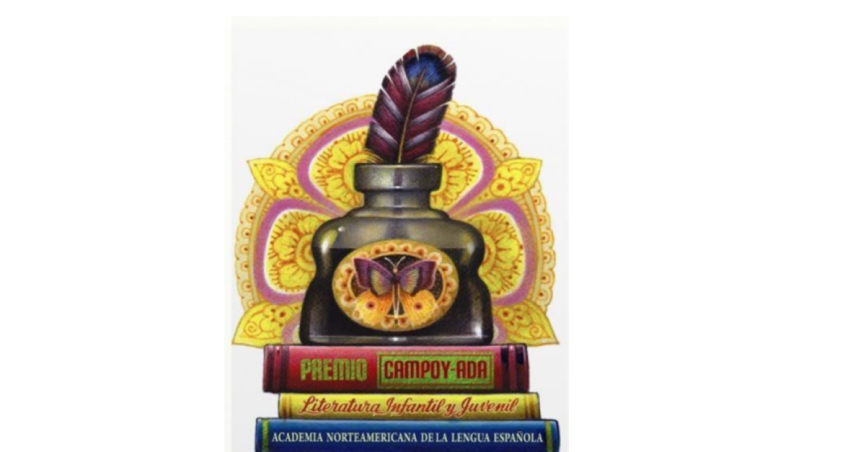Sign up for TPR Today, Texas Public Radio’s newsletter that brings our top stories to your inbox each morning.
Spanish language children’s literature will be celebrated on Thursday, April 3, with the Campoy-Ada Awards for bilingual and Spanish-language literature for young people. It will honor children’s and YA fiction, non-fiction, and poetry.
The ceremony begins at 6 p.m., at the University of Texas at San Antonio’s downtown campus and will be streamed on the Department of Bicultural-Bilingual Studies Facebook page.
Patricia Sánchez, professor and department chair at UTSA’s Department of Bicultural-Bilingual Studies, joined TPR’s Norma Martinez to talk about the awards.
Carmen Tafolla, professor emeritus at UTSA, and former poet laureate for the City of San Antonio and the State of Texas, also joined the conversation. Tafolla will receive the Campoy-Ada award for Latino-centric Young Adult Poetry for Guerrera, the Spanish translation of her 2023 book, Warrior Girl.
Sánchez explained the origins of the Campoy-Ada Awards:
Sánchez: So, there is some great history involved with one of our professors in our department, Dr. Howard Smith. Back in 2015, he was speaking with Isabel Campoy — and for those of you in the field of bilingual education and Spanish language literature for children, [you] know that Isabel Campoy and Alma Flor Ada are just two amazing giants in that field. And Dr. Smith, being a bilingual education professor and still with us, was speaking to them that there wasn’t an award in the U.S. for children’s literature that was strictly or solely written in Spanish.
There are awards across the U.S. that honor works about multicultural concepts, or families, or Latino families or Latino histories, but not one specifically that the book needs to have been written in Spanish.
And so, Dr. Smith is at UTSA. Isabel Campoy is a member of the Academia Norte Americana de la Lengua Española, the North American Academy for the Spanish language. And so, they decided to bring both forces together and create an MOU [memorandum of understanding] between the two institutions.
And so, we’ve been carrying out this awards program since 2017.
Martinez: Well, Carmen, tell us a little bit about the book which you won an award for. It is in English and in Spanish, and the Spanish version, obviously, is what won this award. So, tell us a little bit more about this book.
Tafolla: Well, I don’t think we’ve had enough children’s literature set in San Antonio. San Antonio is a very important, very special city. And it has been the first in so many ways when we deal with bilingual, biculturalism. But not enough of the children’s work is set here. And I wanted to capture the beauty of our environment, the beauty of our community, of our incredibly supportive, bilingual educational community.
And so, I set the story of a young girl, a 12-year-old girl in San Antonio, in the West Side. And it was in a period that was a different period. It’s set in fairly contemporary times. It is set in the 2019-2020 school year.
She, as a mature 12-year-old, is looking back on the experiences that have happened to her in her life and she’s realizing that she’s had some things taken away from her. Her name has been changed, her language has been denigrated in some of the schools in which she had attended as a younger child, and she’s heard things on national television cutting down her culture and her ethnicity.
And it explores her reclaiming — as a very young person — reclaiming her name, reclaiming her culture, reclaiming her power to be happy and to celebrate and to live life on her own terms. And this young woman is trying to figure out who she is.
She realizes that tough things happen, but maybe the toughest of all happens the night before she starts seventh grade. She’s got her clothes all laid out. She’s all ready to go, everything’s wonderful in the world. And her father, who has struggled to get his papers her entire life, is deported.
In the process … and you know what happened in 2019 to 2020. We get a [COVID-19] pandemic hit early in the spring. There’s some real difficulties. But she learns heavily from her grandmother, who has strong indigenous San Antonio roots, about how internal strength is what gets you through, and how there are many ways to approach finding your strength — celebration being one of them.
And in fact, one of the primary messages comes out of one of the poems. It says because when you’re celebrating, when you find a reason to be happy, a reason to sing or dance or paint or play or laugh or write, they haven’t taken everything away from you. And that becomes her guide, her goal, to find that your internal strength can get you through and can allow you to enjoy life and to celebrate the things that are good and to work to change the things that are not empowering.
Martinez: And Patricia, swinging back around to this awards ceremony happening April 3. Can you give us some more details about that?
Sánchez: Yeah, so the [ceremony] is free and open to the public. We have a reception first from 6 to 7 p.m., which is just a big fancy word to come in and have some food and drink and little music playing, and maybe there’ll be an informal toast there by some of the judges. And then at 7 p.m., we’ll actually move to a different room, right in the same building, where we actually will have the ceremony.
The other thing we should point out is that this awards program also gives a prize to the folks who help translate or adapt the book to Spanish. So we like to also put them front and center on our slideshow for the evening: “Here’s the author, here’s the illustrator, and here is the translator, or person who adapted the book from English to Spanish.” And if, again, the translator is not present to receive their award, it will be mailed to them. So that’s also something that we’re trying to promote, that there’s multiple people that go into making a book.
And then what we wanted to do is to create a little movement, so we decided to invite about 15 children from a local school, Irving Dual Language Academy in San Antonio ISD, to bring 15 kids and their families, and we’re calling them our bilingual ambassadors. So again, to create that kind of Grammy/Oscar look, we’re gonna say, “and the winner for this book is such and such,” and we’ll feature the author, the illustrator, the translator, but to be an ambassador of this book to their school, “would Juanito Santos come up and get this book and take it to their school?” So that is something we’re doing that then they can take that book back to their home. They’re gonna own it. They can take it and share it with their classmates. But we’re calling them our little bilingual ambassadors, just to have a little more movement, a little more applause, and kind of create a sense of community that these books are being written for children in all of our schools, locally and across Texas.











